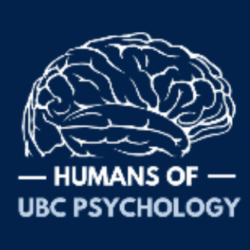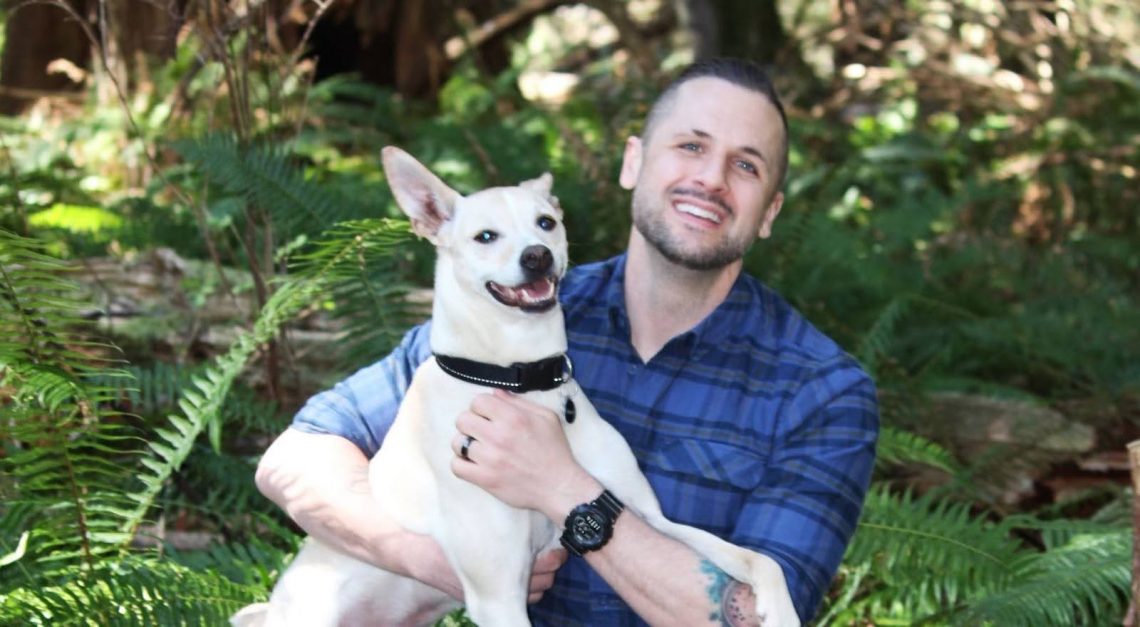For our readers’ information, who is Dr. King? What brought you to UBC?
I am a lecturer now in the (psychology) department and originally came to UBC to complete my PhD in health psychology. That took me five years, and then I did a postdoc at SFU, but I had been doing a lot of teaching along the way. In the end, I wanted to stay in the Vancouver area, and found that I was enjoying teaching more and more over the years. So I sort of fell into a teaching-focused position and am really happy to have this spot now. As much as I love research, there’s an immediate kind of feedback and a sense of impact in teaching that is certainly harder to find in research, as much as I love and respect research. So, that’s where I’m at now.
As for the PrideMind initiative, for which you are one of the progenitors, could you summarize what it is for?
PrideMind is an initiative to create a more active community for LGBTQ+ students, both undergraduate and graduate, as well as staff and faculty within the Department of Psychology. We are working with the EDI (Equity, Diversity, and Inclusion) committee in the department, and with their support we are trying, through a number of specific initiatives, to foster a stronger sense of community for LGBTQ+ members in psychology. Our goals include creating safe spaces in the department, getting people better access to support services, and organizing social events along the way, with the hope of connecting members of the community.
What role do you play in this initiative, and broadly, in fostering a more active community for LGBTQ+ people within UBC’s psychology department?
So far, I’m one of three people who are involved in the project, and we are all leading this initiative together. I am working with Kiarah O’Kane, who is a graduate student in the department, as well as Fides Arguelles, a lab manager, and we’ve been collaborating on forming and developing the initiative. Kiarah was successful in getting some funding for a website, which is an important part of our work. We weren’t necessarily asked to take on this role; it was our shared interests that just happened to coincide. The three of us had this idea around the same time and happened to connect. And, in less than a year, we’ve already managed to get a lot rolling with the project!
That’s wonderful! Was there a specific moment or experience you had which inspired you personally to start this initiative?
For me, first and foremost, I’ve always been really concerned with student wellbeing. I’ve always gone out of my way to make sure that students have access to resources pertaining to mental health. That’s always been a particular concern for me in my teaching, and I’ve always wanted to do whatever I could to support students in that way. But, at the same time, providing resources alone has never really felt like enough. There are, of course, a number of communities on campus that may have specific needs, or who may benefit from additional forms of support. When it comes to supporting the LGBTQ+ community specifically, not only am I a part of that community, but I’ve also noticed a lack of certain forms of support in our department and at UBC broadly. This is by no means to criticize the department (I think we’re doing well overall), but I’ve gotten the sense over the years that there are some real opportunities to further support individuals in the community. I feel like psychology should be leading the way, in that respect.
In terms of any particular experience that was further motivating for me, I don’t know that there was one event. There were the anti-SOGI protests that happened early last year, and again this year. That was definitely something that made me think about this a little more. Everything that’s happening out there in the world, in terms of hate directed at the LGBTQ+ community, is always on my mind, as is how we can better deal with and respond to such threats. There was a survey published this year that suggested support for LGBTQ+ people in Canada has been on the decline. Similar surveys have suggested this in the United States as well. So, I think that it’s the right time to stand up and form a stronger community, in order to resist some of these external pressures. All of these things that we’re up against, at the end of the day, are stressful and burdensome. And this is especially true, I think, for university students, who are already burdened enough.
This really delves into why having resources, like the PrideMind initiative, is so important in today’s socio-political climate.
Yes, I think so. Like I was saying, we’re seeing an uptick in hate and a lot more tension socially and politically. It’s all really heavy, and it can make people feel a lot less safe on campus. Even if UBC specifically feels like a fairly safe place for most, what’s happening around us is a source of stress that directly affects life in the UBC community. So, connection, community and coming together, or at the very least, having conversations about these issues, are all important in order to make members of the community feel safe.
What do you hope to see in the future, for the PrideMind initiative? How would you like to see it evolve over time? For example, do you hope for it to become a mainstay on campus?
We have a lot of things lined up for this year that are a little more concrete. We have a website that I mentioned; we received funding for that, with the goal of providing more resources to students, pertaining to health as well as academic goals and opportunities. We’re hoping to include information about LGBTQ+ mentors in the (psychology) department on this website, and research that may be specifically of interest to the community. So the website is an important goal in terms of, not only creating a presence in the department, but actually providing resources in a way that is more directly relevant to the community. We are also planning a couple of social events this year, since the social aspect is an important factor.
My long-term vision, personally, is that I hope the PrideMind initiative will be able to take on a bit more of a political role locally. I’d like for the initiative to cultivate a stronger voice, both within and outside of the psychology department, and respond to some of the things happening around us. When this year’s anti-SOGI protest took place, the PrideMind initiative wrote a statement in response to that protest, which was then distributed throughout the Psychology department. Responding to these kinds of events, as they happen, is one of the ways that I think we can play a more active role on campus. I would also like to see us develop some ways to better respond to disinformation pertaining to the LGBTQ+ community, and in particular, gender diverse people. This is a major challenge we’re facing socially; the sheer amount of disinformation that is out there. Considering the fact that we’re operating within the psychology department and we are research-driven, we could easily provide a more evidence-based look at some of the disinformation that is out there. So those are some of the things that I would like to see happen eventually. Overall, taking a much more active role in some of these social issues and challenges would be ideal.
What advice would you give to (LGBTQ+) psychology students navigating life at UBC, who may be feeling unwelcome or overwhelmed? What resources and/or support networks are currently available to them?
There is the UBC Pride Collective, which is one of the active groups on campus and it is a student-led organization. They facilitate events and provide various resources on campus. Generally speaking, UBC is fairly supportive of LGBTQ+ individuals. One of the things we did this past summer was conduct a department-wide survey which went out to all undergraduate students, asking them about their experiences both within the department and at UBC in general. Overall, there was a fairly high level of satisfaction in terms of feeling included, feeling accepted, and not feeling discriminated against. Of course, there is room to improve, but this suggests that our campus is fairly welcoming, and that seems to be true of our department as well. I hope that the culture of acceptance and inclusivity continues to be maintained over time, and I hope that incoming first-year students are left with this impression as well.
To close the interview, are there any specific links you’d like to share?
Unfortunately, the PrideMind website is not up and running yet. However, if students are interested in staying connected, or getting involved in the initiative by attending any future events, they can email me at dbking11@psych.ubc.ca and I can add them to our LISTSERV. We have a PrideMind LISTSERV now to keep everyone updated on things that are happening, including any workshops or social events that we’ll be holding in the future.
Thank you so much for your time. All the best with the initiative!
Thank you. And I just want to reiterate an earlier point about the importance of community during these trying times. Whether you’re a member of the LGBTQ+ community or a member of another community that faces stigma and discrimination, at the end of the day, what we really need is to come together and work together in order to more effectively mitigate these various sources of stress. I’ve talked to a lot of students in the last couple of years who believe that the world is becoming more and more of a challenging place, and that’s understandably an overwhelming feeling. There are so many growing existential fears and concerns, and the socio-political climate is becoming increasingly polarizing. And so, again, I think the solution to these challenges is to come together, and in so doing foster a stronger sense of community and belonging for everyone at UBC.
Interview by Kareena Modha, Darius Zaslona, and Kayla Azizah

